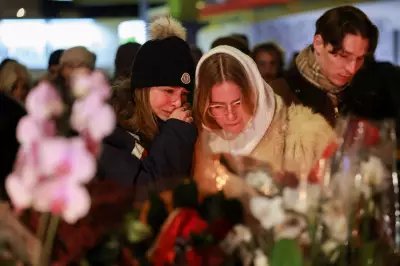
In a tragedy that has exposed deep fissures in San Francisco's criminal justice system, a repeat offender released early under controversial reforms has been convicted of killing two women while driving drunk in a stolen vehicle.
A Deadly Day After Christmas
The horrific incident occurred on December 26, 2020, when Troy McAlister, then 45, ploughed into Elizabeth Platt, 60, and Hanako Abe, 27, at a busy San Francisco intersection. Both women died instantly in the catastrophic collision.
McAlister was behind the wheel of a stolen Honda SUV while intoxicated and fleeing from police when he ran a red light at Mission and Second streets, striking the victims with devastating force.
Systemic Failures Laid Bare
What makes this case particularly disturbing is McAlister's extensive criminal history and his recent release from custody. Just months before the fatal crash, he had been released from prison and was under supervision for multiple prior convictions.
Court documents reveal McAlister had accumulated at least five prior strikes under California's three-strikes law and had been arrested multiple times in the months leading up to the deadly incident. Yet he remained on the streets.
Missed Opportunities
Evidence presented during the trial showed that San Francisco prosecutors had multiple opportunities to return McAlister to prison for parole violations before the fatal crash. However, under District Attorney Chesa Boudin's administration - which championed reducing incarceration - these chances were missed.
This case became a focal point in the recall campaign that eventually removed Boudin from office, with critics arguing his policies put dangerous offenders back on the streets.
Justice Served, But Lives Lost
McAlister ultimately pleaded guilty to two counts of murder and was sentenced to 15 years to life in prison. While justice has been formally served, the families of both victims continue to mourn their devastating loss.
The case continues to fuel debate about criminal justice reform, public safety, and the balance between rehabilitation and community protection in cities across America.





